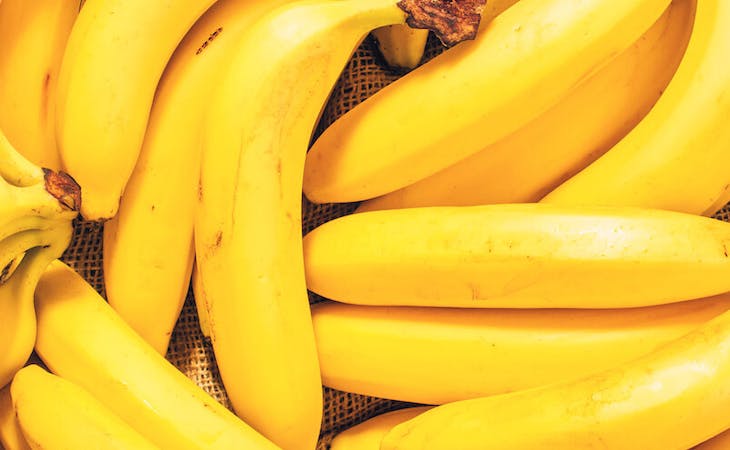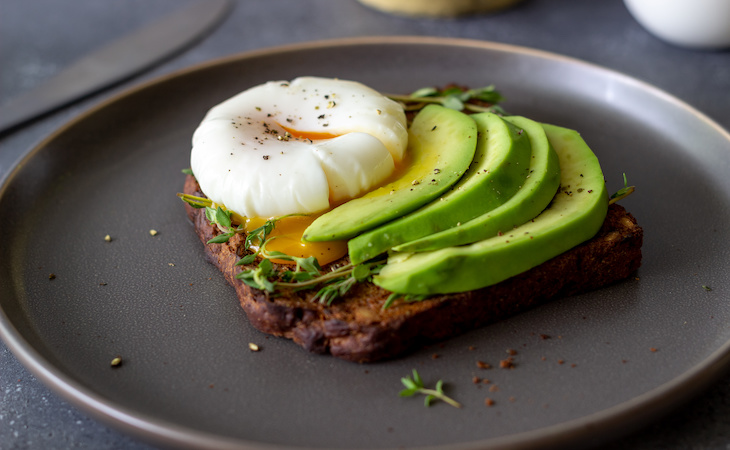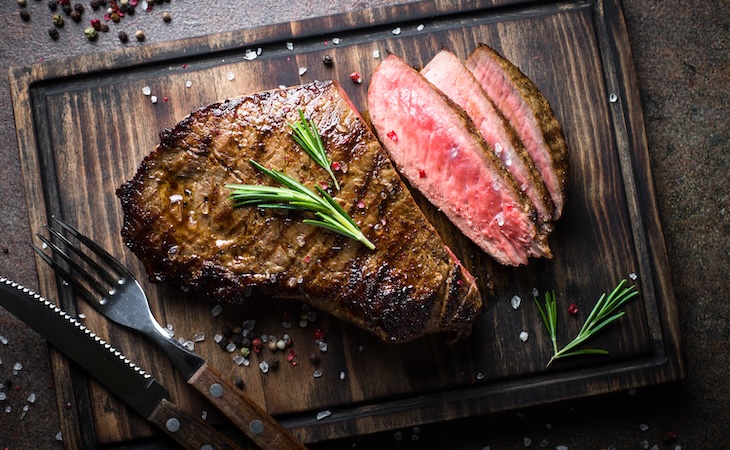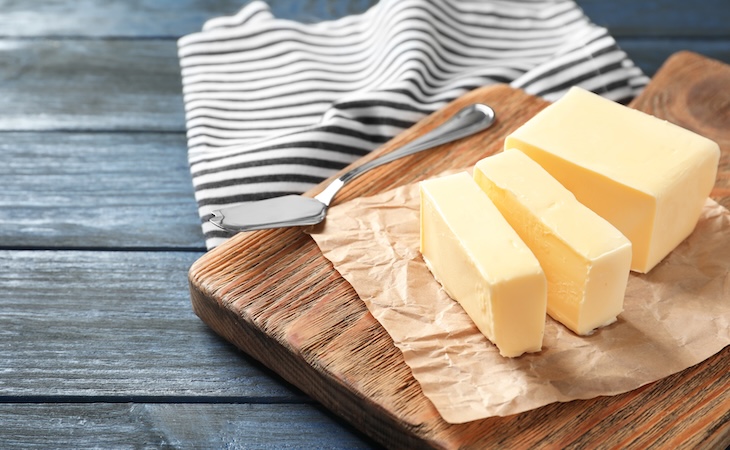Some foods, like Thanksgiving turkey, are famous for their sleep-promoting qualities. Others you know you’re best off avoiding before bed, like a big espresso drink.
If you often find yourself in the kitchen with the munchies just before bedtime, you might want to consider making a beeline for the fruit bowl instead of the pantry. As it turns out, a banana makes for a surprisingly good choice for a late-night snack—especially if you’re feeling not-so-sleepy.
“Many times when people are hungry, they either can’t go to sleep or wake up due to hunger pangs,” says Amy Goodson, RD. Having a little snack, like a small- to medium-sized banana with a spoonful of peanut butter or a glass of milk can help stabilize your blood sugar and satisfy cravings thanks to a filling combination of carbs and protein, she explains.
But why reach for a banana at night? Here’s what you need to know about how eating this fruit can help support quality Z’s.
Why a banana before bed is good for you
If a grumbling tummy tends to keep you up, a banana makes for the perfect bedtime snack because it’s a good source of fiber in the form of resistant starch, a carbohydrate that passes through your digestive system without being entirely absorbed, and pectin, another type of starch that gives the banana its firm structure and shape.
Both of these nutrients can help you feel more full, and when your hunger’s been satisfied, it’s much easier to get a good night’s sleep, says Goodson. (Considering most of us don’t get in nearly enough fiber, the three grams of fiber in a banana could also give you the boost you need to get closer to your daily target of 25 grams for women and 31 grams for men, per the 2015-2020 Dietary Guidelines for Americans).
Beyond making you feel more full, there are a number of other ways bananas can improve your sleep, owing to their key nutrients, which include potassium, tryptophan, and magnesium.
Here are the top four ways a banana before bed can help you get more rest.
Helps insomnia
There’s a reason so many people are Googling, “Do bananas help you sleep?” For starters, “the potassium in bananas acts as a natural muscle relaxant,” says Goodson. Plus, tryptophan (the amino acid best-known for triggering Turkey Day snooze-fests) increases the production of calming serotonin.
In turn, serotonin contributes to the release of melatonin, the neurotransmitter that helps you transition into sleep mode at night. Finally, bananas contain magnesium, which a review in Nutrition Research reports can improve sleep quality and duration in people who struggle to get a good night’s sleep.
Reduces muscle cramps
Waking up with a charley horse is the worst. But a banana—along with a glass of water—could also help cut your chances of having painful nighttime cramps. This is because of the muscle-relaxing effects of potassium, says Goodson.
Eases restless legs syndrome
While it’s unclear what exactly causes restless legs syndrome (RLS), some research suggests vitamin deficiencies in nutrients including magnesium could be causing that frustrating creepy-crawly sensation in your legs at night. So, a banana before bed couldn’t hurt (in addition to a good sleep schedule, other lifestyle changes like an evening stretching routine, and in some cases, medication).
Lowers blood pressure
A potassium-rich diet can help lower your blood pressure, especially if you’re sensitive to salt, per the American Heart Association. And a medium banana serves up 422 mg of this nutrient or 9% of the daily value based on a 2,000-calorie diet, says Goodson. Since potassium is a nutrient of concern for Americans, bananas are one of the best ways you can boost your intake and support a good night’s sleep.
Other foods to help sleep
In general, sticking with a well-balanced diet will help support your sleep health. However, along with the banana, there are many other foods that are particularly sleep-supportive thanks to their unique nutrient profile.
- Other magnesium-rich foods that may help ease you into sleep include nuts and seeds, avocados, and beans.
- Other potassium-rich foods include carrot juice, potatoes, salmon, tuna, and spinach.
- Other foods high in tryptophan you could chow down on before bed include poultry, eggs, pumpkin seeds, and cheddar cheese.
- Calcium-rich foods like dairy, citrus fruits, dark leafy greens, and fish also support a good night’s sleep because calcium helps the brain produce tryptophan and, in turn, sleepytime melatonin.
Remember: The ideal late-night snack includes a combo of high-quality, fiber-rich carbs and protein. You can’t go wrong with avocado toast, half a turkey sandwich, cheese and crackers, or a handful of nuts and berries.
What to avoid before bed
When it comes to foods and drinks that threaten your ability to get quality sleep, there are some you probably already know quite well thanks to, well, bad experiences. Anything that has caffeine—coffee, soda, chocolate—ranks high on the must-avoid list, as does alcohol (which bars you from getting the restorative sleep you need).
Other than those, try to stay away from high-fat, high-sugar junk foods (sorry, but it’s true!). Processed foods high in added sugar make it harder to fall asleep and get quality Z’s, and too much fat can slow digestion and trigger heartburn and acid reflux when you lie down to sleep.
Tart cherries also promote healthy sleep. Here, learn about the science behind how tart cherries help you sleep.




